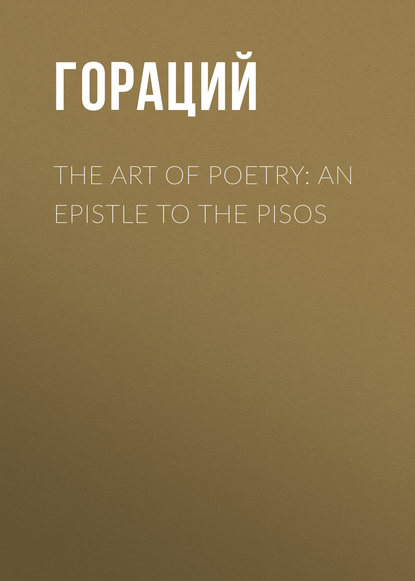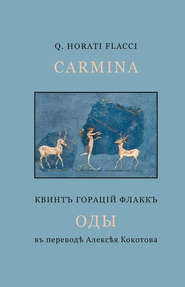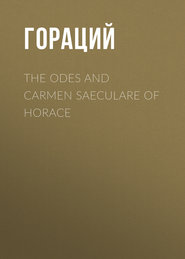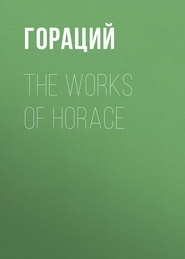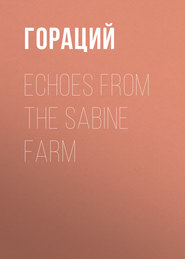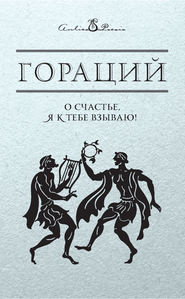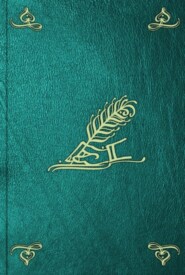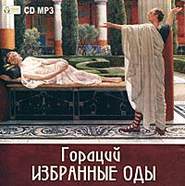По всем вопросам обращайтесь на: info@litportal.ru
(©) 2003-2024.
✖
The Art of Poetry: an Epistle to the Pisos
Настройки чтения
Размер шрифта
Высота строк
Поля
For rich ill poets are without excuse.
"Tis very dang'rous, tamp'ring with a Muse;
The profit's small, and you have much to lose:
For tho' true wit adorns your birth, or place,
Degenerate lines degrade th' attainted race."
Essay on Translated Verse.
630.—But if he keeps a table, &c.—Si vero est unctum, &c.
"Here (says Dacier) the Poet pays, en passant, a very natural and delicate compliment to the Pisos." The drift of the Poet is evident, but I cannot discover the compliment.
636.—Is there a man, to whom you've given ought, Or mean to give?
TU, seu donaris, &c.
Here the Poet advises the Elder Piso never to read his verses to a man, to whom he has made a promise, or a present: a venal friend cannot be a good Critick; he will not speak his mind freely to his patron; but, like a corrupt judge, betray truth and justice for the sake of interest. DACIER.
643.—Kings have been said to ply repeated bowls, &c.
Reges dicuntur, &c.
Regum exemplo Pisones admonet; ut neminem admittant ad suorum carminum emendationem, nisi prius optimè cognitum, atque perspectum. DE NORES.
654.—QUINTILIUS.] The Poet Quintilius Varus, the relation and intimate friend of Virgil and Horace; of whom the latter lamented his death in a pathetick and beautiful Ode, still extant in his works. Quintilius appears to have been some time dead, at the time of our Poet's writing this Epistle. DACIER.
[QUINTILIUS.] Descriptis adulatorum moribus & consuetudine, assert optimi & sapientissimi judicis exemplum: Quintilii soilicet, qui tantae erat authoritatis apud Romanos, ut ei Virgilii opera Augustus tradiderit emendanda.
664.—THE MAN, IN WHOM GOOD SENSE AND HONOUR JOIN.]
It particularly suited Horace's purpose to paint the severe and rigid judge of composition. Pope's plan admitted softer colours in his draught of a true Critick.
But where's the man, who counsel can bestow,
Still pleas'd to teach, and yet not proud to know?
Unbiass'd, or by favour, or by spite;
Not dully prepossess'd, nor blindly right;
Tho' learn'd, well-bred; and tho' well-bred, sincere;
Modestly bold, and humanly severe:
Who to a friend his faults can freely show,
And gladly praise the merit of a foe?
Blest with a taste exact, yet unconfin'd;
A knowledge both of books and human kind;
Gen'rous converse; a soul exempt from pride;
And love to praise, with reason on his side?
Essay on Criticism.
684.—WHILE WITH HIS HEAD ERECT HE THREATS THE SKIES.]
"Horace, (says Dacier) diverts himself with describing the folly of a Poet, whom his flatterers have driven mad." To whom the caution against flatterers was addressed, has before been observed by Dacier. This description therefore, growing immediately out of that caution, must be considered as addressed to the Elder Piso.
699.—Leap'd COLDLY into AEtna's burning mount.
Ardentem FRIGIDUS aetnam insiluit.
This is but a cold conceit, not much in the usual manner of Horace.
710.—
Whether, the victim of incestuous love, THE SACRED MONUMENT he striv'd to move.
An TRISTE BIDENTAL moverit incestus.
The BIDENTAL was a place that had been struck with lightning, and afterwards expiated by the erection of an altar and the sacrifice of sheep; hostiis BIDENTIBUS; from which it took its name. The removal or disturbance of this sacred monument was deemed sacrilege; and the attempt, a supposed judgement from heaven, as a punishment for some heavy crime.
718.—
HANGS ON HIM, NE'ER TO QUIT, WITH CEASELESS SPEECH. TILL GORG'D, AND FULL OF BLOOD, A VERY LEECH.
The English Commentary introduces the explication of the last hundred and eleven lines of this Epistle, the lines which, I think, determine the scope and intention of the whole, in the following manner.
"Having made all the reasonable allowances which a writer could expect, he (Horace) goes on to enforce the general instruction of this part, viz. A diligence in writing, by shewing [from l. 366 to 379] that a mediocrity, however tolerable, or even commendable, it might be in other arts, would never be allowed in this."—"This reflection leads him with great advantage [from l. 379 to 391] to the general conclusion in view, viz. that as none but excellent poetry will be allowed, it should be a warning to writers, how they engage in it without abilities; or publish without severe and frequent correction."
If the learned Critick here means that "the general instruction of this part, viz. a diligence in writing, is chiefly inculcated, for the sake of the general conclusion in view, a warning to writers, how they engage in poetry without abilities, or publish without severe and frequent correction;" if, I say, a dissuasive from unadvised attempts, and precipitate publication, is conceived to be the main purpose and design of the Poet, we perfectly agree concerning this last, and important portion of the Epistle: with this addition, however, on my part, that such a dissuasive is not merely general, but immediately and personally directed and applied to the Elder Piso, and that too in the strongest terms that words can afford, and with a kind of affectionate earnestness, particularly expressive of the Poet's desire to awaken and arrest his young friend's attention.
I have endeavoured, after the example of the learned and ingenious author of the English Commentary, though on somewhat different principles, to prove "an unity of design in this Epistle," as well as to illustrate "the pertinent connection of its several parts." Many perhaps, like myself, will hesitate to embrace the system of that acute Critick; and as many, or more, may reject my hypothesis. But I am thoroughly persuaded that no person, who has considered this work of Horace with due attention, and carefully examined the drift and intention of the writer, but will at least be convinced of the folly or blindness, or haste and carelessness of those Criticks, however distinguished, who have pronounced it to be a crude, unconnected, immethodical, and inartificial composition. No modern, I believe, ever more intently studied, or more clearly understood the works of Horace, than BOILEAU. His Art of Poetry is deservedly admired. But I am surprised that it has never been observed that the Plan of that work is formed on the model of this Epistle, though some of the parts are more in detail, and others varied, according to the age and country of the writer. The first Canto, like the first Section of the Epistle to the Pisos, is taken up in general precepts. The second enlarges on the Lyrick, and Elegiack, and smaller species of Poetry, but cursorily mentioned, or referred to, by Horace; but introduced by him into that part of the Epistle, that runs exactly parallel with the second Canto of Boileau's Art of Poetry. The third Canto treats, entirely on the ground of Horace, of Epick and Dramatick Poetry; though the French writer has, with great address, accommodated to his purpose what Horace has said but collaterally, and as it were incidentally, of the Epick. The last Canto is formed on the final section, the last hundred and eleven lines, of the Epistle to the Pisos: the author however, judiciously omitting in a professed Art of Poetry, the description of the Frantick Bard, and concluding his work, like the Epistle to Augustus, with a compliment to the Sovereign.
This imitation I have not pointed out, in order to depreciate the excellent work of Boileau; but to shew that, in the judgement of so great a writer, the method of Horace was not so ill conceived, as Scaliger pretends, even for the outline of an Art of Poetry: Boileau himself, at the very conclusion of his last Canto, seems to avow and glory in the charge of having founded his work on that of HORACE.
Pour moi, qui jusq'ici nourri dans la Satire,
N'ofe encor manier la Trompette & la Lyre,
Vous me verrez pourtant, dans ce champ glorieux,
Vous animez du moins de la voix & des yeux;
Vous offrir ces leçons, que ma Muse au Parnasse,
Rapporta, jeune encor, DU COMMERCE D'HORACE.
BOILEAU.
After endeavouring to vouch so strong a testimony, in favour of Horace's unity and order, from France, it is but candid to acknowledge that two of the most popular Poets, of our own country, were of a contrary opinion. Dryden, in his dedication of his translation of the aeneid to Lord Mulgrave, author of the Essay on Poetry, writes thus. "In this address to your Lordship, I design not a treatise of Heroick Poetry, but write in a loose Epistolary way, somewhat tending to that subject, after the example of Horace, in his first Epistle of the 2d Book to Augustus Caesar, and of that to the Pisos; which we call his Art of Poetry. in both of which he observes no method that I can trace, whatever Scaliger the Father, or Heinsius may have seen, or rather think they had seen_. I have taken up, laid down, and resumed as often as I pleased the same subject: and this loose proceeding I shall use through all this Prefatory Dedication. Yet all this while I have been sailing with some side-wind or other toward the point I proposed in the beginning." The latter part of the comparison, if the comparison is meant to hold throughout, as well as the words, "somewhat tending to that subject," seem to qualify the rest; as if Dryden only meant to distinguish the loose EPISTOLARY way from the formality of a Treatise. However this may be, had he seen the Chart, framed by the author of the English Commentary, or that now delineated, perhaps he might have allowed, that Horace not only made towards his point with some side-wind or other, but proceeded by an easy navigation and tolerably plain sailing.
Many passages of this Dedication, as well as other pieces of Dryden's prose, have been versified by Pope. His opinion also, on the Epistle to the Pisos, is said to have agreed with that of Dryden; though the Introduction to his Imitation of the Epistle to Augustus forbids us to suppose he entertained the like sentiments of that work with his great predecessor. His general idea of Horace stands recorded in a most admirable didactick poem; in the course of which he seems to have kept a steady eye on this work of our author.
Horace still charms with graceful negligence,
And WITHOUT METHOD talks us into sense;
Will, like a friend, familiarly convey
The truest notions in the easiest way:
He, who supreme in judgment, as in wit,
Might boldly censure, as he boldly writ,
Yet judg'd with coolness, tho' he sung with fire;
His precepts teach but what his works inspire.
Our Criticks take a contrary extreme,
"Tis very dang'rous, tamp'ring with a Muse;
The profit's small, and you have much to lose:
For tho' true wit adorns your birth, or place,
Degenerate lines degrade th' attainted race."
Essay on Translated Verse.
630.—But if he keeps a table, &c.—Si vero est unctum, &c.
"Here (says Dacier) the Poet pays, en passant, a very natural and delicate compliment to the Pisos." The drift of the Poet is evident, but I cannot discover the compliment.
636.—Is there a man, to whom you've given ought, Or mean to give?
TU, seu donaris, &c.
Here the Poet advises the Elder Piso never to read his verses to a man, to whom he has made a promise, or a present: a venal friend cannot be a good Critick; he will not speak his mind freely to his patron; but, like a corrupt judge, betray truth and justice for the sake of interest. DACIER.
643.—Kings have been said to ply repeated bowls, &c.
Reges dicuntur, &c.
Regum exemplo Pisones admonet; ut neminem admittant ad suorum carminum emendationem, nisi prius optimè cognitum, atque perspectum. DE NORES.
654.—QUINTILIUS.] The Poet Quintilius Varus, the relation and intimate friend of Virgil and Horace; of whom the latter lamented his death in a pathetick and beautiful Ode, still extant in his works. Quintilius appears to have been some time dead, at the time of our Poet's writing this Epistle. DACIER.
[QUINTILIUS.] Descriptis adulatorum moribus & consuetudine, assert optimi & sapientissimi judicis exemplum: Quintilii soilicet, qui tantae erat authoritatis apud Romanos, ut ei Virgilii opera Augustus tradiderit emendanda.
664.—THE MAN, IN WHOM GOOD SENSE AND HONOUR JOIN.]
It particularly suited Horace's purpose to paint the severe and rigid judge of composition. Pope's plan admitted softer colours in his draught of a true Critick.
But where's the man, who counsel can bestow,
Still pleas'd to teach, and yet not proud to know?
Unbiass'd, or by favour, or by spite;
Not dully prepossess'd, nor blindly right;
Tho' learn'd, well-bred; and tho' well-bred, sincere;
Modestly bold, and humanly severe:
Who to a friend his faults can freely show,
And gladly praise the merit of a foe?
Blest with a taste exact, yet unconfin'd;
A knowledge both of books and human kind;
Gen'rous converse; a soul exempt from pride;
And love to praise, with reason on his side?
Essay on Criticism.
684.—WHILE WITH HIS HEAD ERECT HE THREATS THE SKIES.]
"Horace, (says Dacier) diverts himself with describing the folly of a Poet, whom his flatterers have driven mad." To whom the caution against flatterers was addressed, has before been observed by Dacier. This description therefore, growing immediately out of that caution, must be considered as addressed to the Elder Piso.
699.—Leap'd COLDLY into AEtna's burning mount.
Ardentem FRIGIDUS aetnam insiluit.
This is but a cold conceit, not much in the usual manner of Horace.
710.—
Whether, the victim of incestuous love, THE SACRED MONUMENT he striv'd to move.
An TRISTE BIDENTAL moverit incestus.
The BIDENTAL was a place that had been struck with lightning, and afterwards expiated by the erection of an altar and the sacrifice of sheep; hostiis BIDENTIBUS; from which it took its name. The removal or disturbance of this sacred monument was deemed sacrilege; and the attempt, a supposed judgement from heaven, as a punishment for some heavy crime.
718.—
HANGS ON HIM, NE'ER TO QUIT, WITH CEASELESS SPEECH. TILL GORG'D, AND FULL OF BLOOD, A VERY LEECH.
The English Commentary introduces the explication of the last hundred and eleven lines of this Epistle, the lines which, I think, determine the scope and intention of the whole, in the following manner.
"Having made all the reasonable allowances which a writer could expect, he (Horace) goes on to enforce the general instruction of this part, viz. A diligence in writing, by shewing [from l. 366 to 379] that a mediocrity, however tolerable, or even commendable, it might be in other arts, would never be allowed in this."—"This reflection leads him with great advantage [from l. 379 to 391] to the general conclusion in view, viz. that as none but excellent poetry will be allowed, it should be a warning to writers, how they engage in it without abilities; or publish without severe and frequent correction."
If the learned Critick here means that "the general instruction of this part, viz. a diligence in writing, is chiefly inculcated, for the sake of the general conclusion in view, a warning to writers, how they engage in poetry without abilities, or publish without severe and frequent correction;" if, I say, a dissuasive from unadvised attempts, and precipitate publication, is conceived to be the main purpose and design of the Poet, we perfectly agree concerning this last, and important portion of the Epistle: with this addition, however, on my part, that such a dissuasive is not merely general, but immediately and personally directed and applied to the Elder Piso, and that too in the strongest terms that words can afford, and with a kind of affectionate earnestness, particularly expressive of the Poet's desire to awaken and arrest his young friend's attention.
I have endeavoured, after the example of the learned and ingenious author of the English Commentary, though on somewhat different principles, to prove "an unity of design in this Epistle," as well as to illustrate "the pertinent connection of its several parts." Many perhaps, like myself, will hesitate to embrace the system of that acute Critick; and as many, or more, may reject my hypothesis. But I am thoroughly persuaded that no person, who has considered this work of Horace with due attention, and carefully examined the drift and intention of the writer, but will at least be convinced of the folly or blindness, or haste and carelessness of those Criticks, however distinguished, who have pronounced it to be a crude, unconnected, immethodical, and inartificial composition. No modern, I believe, ever more intently studied, or more clearly understood the works of Horace, than BOILEAU. His Art of Poetry is deservedly admired. But I am surprised that it has never been observed that the Plan of that work is formed on the model of this Epistle, though some of the parts are more in detail, and others varied, according to the age and country of the writer. The first Canto, like the first Section of the Epistle to the Pisos, is taken up in general precepts. The second enlarges on the Lyrick, and Elegiack, and smaller species of Poetry, but cursorily mentioned, or referred to, by Horace; but introduced by him into that part of the Epistle, that runs exactly parallel with the second Canto of Boileau's Art of Poetry. The third Canto treats, entirely on the ground of Horace, of Epick and Dramatick Poetry; though the French writer has, with great address, accommodated to his purpose what Horace has said but collaterally, and as it were incidentally, of the Epick. The last Canto is formed on the final section, the last hundred and eleven lines, of the Epistle to the Pisos: the author however, judiciously omitting in a professed Art of Poetry, the description of the Frantick Bard, and concluding his work, like the Epistle to Augustus, with a compliment to the Sovereign.
This imitation I have not pointed out, in order to depreciate the excellent work of Boileau; but to shew that, in the judgement of so great a writer, the method of Horace was not so ill conceived, as Scaliger pretends, even for the outline of an Art of Poetry: Boileau himself, at the very conclusion of his last Canto, seems to avow and glory in the charge of having founded his work on that of HORACE.
Pour moi, qui jusq'ici nourri dans la Satire,
N'ofe encor manier la Trompette & la Lyre,
Vous me verrez pourtant, dans ce champ glorieux,
Vous animez du moins de la voix & des yeux;
Vous offrir ces leçons, que ma Muse au Parnasse,
Rapporta, jeune encor, DU COMMERCE D'HORACE.
BOILEAU.
After endeavouring to vouch so strong a testimony, in favour of Horace's unity and order, from France, it is but candid to acknowledge that two of the most popular Poets, of our own country, were of a contrary opinion. Dryden, in his dedication of his translation of the aeneid to Lord Mulgrave, author of the Essay on Poetry, writes thus. "In this address to your Lordship, I design not a treatise of Heroick Poetry, but write in a loose Epistolary way, somewhat tending to that subject, after the example of Horace, in his first Epistle of the 2d Book to Augustus Caesar, and of that to the Pisos; which we call his Art of Poetry. in both of which he observes no method that I can trace, whatever Scaliger the Father, or Heinsius may have seen, or rather think they had seen_. I have taken up, laid down, and resumed as often as I pleased the same subject: and this loose proceeding I shall use through all this Prefatory Dedication. Yet all this while I have been sailing with some side-wind or other toward the point I proposed in the beginning." The latter part of the comparison, if the comparison is meant to hold throughout, as well as the words, "somewhat tending to that subject," seem to qualify the rest; as if Dryden only meant to distinguish the loose EPISTOLARY way from the formality of a Treatise. However this may be, had he seen the Chart, framed by the author of the English Commentary, or that now delineated, perhaps he might have allowed, that Horace not only made towards his point with some side-wind or other, but proceeded by an easy navigation and tolerably plain sailing.
Many passages of this Dedication, as well as other pieces of Dryden's prose, have been versified by Pope. His opinion also, on the Epistle to the Pisos, is said to have agreed with that of Dryden; though the Introduction to his Imitation of the Epistle to Augustus forbids us to suppose he entertained the like sentiments of that work with his great predecessor. His general idea of Horace stands recorded in a most admirable didactick poem; in the course of which he seems to have kept a steady eye on this work of our author.
Horace still charms with graceful negligence,
And WITHOUT METHOD talks us into sense;
Will, like a friend, familiarly convey
The truest notions in the easiest way:
He, who supreme in judgment, as in wit,
Might boldly censure, as he boldly writ,
Yet judg'd with coolness, tho' he sung with fire;
His precepts teach but what his works inspire.
Our Criticks take a contrary extreme,
Другие электронные книги автора Квинт Гораций Флакк
Другие аудиокниги автора Квинт Гораций Флакк
Избранные оды




 4.67
4.67





